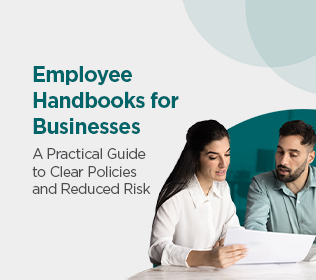Already one of the most protective states of employees’ rights in the country, New York became even more so around the turn of the new decade, with several new laws governing the employer-employee relationship going into effect. These laws will have far-reaching impacts on hiring practices, training requirements, employee contracts, classifications and wages. Here is a look at some of the changes that will affect Long Island employers the most.
No more asking what a job applicant makes
Effective Jan. 6, there is a statewide ban on inquiring about a job applicant’s salary history, said Kimberly Malerba, a partner at Ruskin Moscou Faltischek in Uniondale, who chairs the firm’s employment law and digital media practice groups.
“The trend had been moving in this direction, with New York City, Suffolk and Westchester counties and other municipalities passing salary history ban laws previously,” Malerba said. So even before the statewide ban, “we have been telling clients that it is not advisable to ask about salary. Employers need to take questions about salary history off applications and train all people involved in the hiring process to make sure they are aware that this is something they cannot ask.”
As Pam Emerson, director of compliance for Prestige PEO in Melville, noted, “The ban on asking about salary history is a whole new mindset for people, many of whom don’t even realize they’re doing it.”
The rationale behind the salary history ban is that since there is an existing pay gap between what men and women earn, if a new employer were to base its salary offer on what the prospective employee was making previously, that it would perpetuate the gap, rather than allowing the playing field to become even. Women earn 80 cents for every dollar earned by men, according to recent U.S. Census Bureau data.
The statewide law goes further than the New York City law did in that it prohibits employers from considering salary history of current employees who might be up for a promotion, said Emily Iannucci, a member in Bond Schoeneck & King’s Garden City office.
“Someone who joined the company 15 years ago may have entered at a much lower rate,” Iannucci said. “She may have been making less than she should have been for the last 15 years, and if that salary history is taken into account when she is promoted, there will be an ongoing negative impact.”
The New York Equal Pay Act, which generally provided that no employee be paid at a lesser rate than an employee of the opposite sex in the same establishment for substantially equal work, was expanded in October to include protections based on all protected classes.
Human Rights Law applies to employers of all sizes
Signed into law by Gov. Andrew Cuomo last August, the New York State Human Rights Law strengthened protections against discrimination and harassment, including sexual harassment, with a number of provisions going into effect at various times between August 2019 and August 2020. The far-reaching Human Rights Law will be expanded on Feb. 8 to apply to employers with fewer than four employees, who previously were exempt.
“These small employers must now be much more mindful of the discrimination and harassment laws,” Malerba said.
Stephanie Suarez: Employers must investigate every complaint of sexual harassment and follow a specific format for the investigation.
Sexual harassment remains a hot topic
“Sexual harassment in the workplace was all over the news for the last couple of years,” Iannucci said. The headlines may have faded, but the issue remains a big one for employers, who were required to implement an annual anti-harassment training program by October 2019.
“The training has to be done every year, and employees must receive a copy of the company’s anti-harassment policy every year,” Iannucci said.
There is now a much lower burden for employees bringing a harassment claim. “Previously, employees had to show the harassment was so severe and pervasive that it changed the conditions of their employment – that it interfered with their ability to do their job,” said Jillian McNeil, an associate at Jaspan Schlesinger in Garden City. “It was a high standard – it’s currently the federal standard. Now, all the plaintiff has to show is that he or she was subjected to inferior terms, conditions or privileges because of the harassment.”
One of the challenges employers have begun to encounter under the new anti-sexual harassment law stems from the less publicized investigation requirement, according to Stephanie Suarez, an associate at Meltzer Lippe in Mineola.
“Previously, employers had no specific legal obligation to investigate complaints of sexual harassment, although most employers have followed some sort of internal investigation procedure related to complaints (whether formal or informal),” Suarez said. “Now, New York State not only requires employers to investigate each and every complaint of sexual harassment of which the employer becomes aware, but employers must follow a specific format for the investigation, and must issue written findings at the conclusion of every investigation.
” This is a big change, especially because it applies to all employers throughout New York State, regardless of number of employees, she said. “For many small employers, implementing this level of procedural formality may introduce new challenges to the workplace, from identifying which members of staff should be conducting investigations to ensuring the investigation itself and resulting report are fully in compliance with state law.”
Further, in the case of harassment and discrimination claim settlements, employers cannot require employees to sign a non-disclosure agreement or mandatory arbitration agreement, Iannucci said. As McNeil put it, “An employer cannot make confidentiality a condition of settlement.” Employers that have employment contracts with NDAs or anti-arbitration clauses should review them to make sure there is a carve-out for claims of sexual harassment or discrimination, Iannucci said.
Emily Iannucci: Employers must conduct anti-harassment training and give employees a copy of the company anti-harassment policy every year.
Exempt employee salary threshold, minimum wage rise
At the start of the year, the salary threshold required for employees to be considered exempt from overtime went up, from $900 to $975 weekly ($50,700 annually) on Long Island, Malerba said. (It’s not just about salary; certain job duty requirements must be satisfied for an employee to be considered exempt, as well.)
“If employees do not meet the salary threshold moving into 2020, employers have the option to either change their classification to non-exempt and make them eligible for overtime or increase the employees’ pay to meet the salary threshold,” said Jason Flinn, director of client services for Prestige PEO. “If an employee makes close to that level, the employer might want to increase the employee’s salary. But if the employee’s salary is considerably less, it may make more sense to reclassify the employee as non-exempt and make him or her eligible for overtime.”
Keep in mind, Flinn cautioned, if you do change employees to non-exempt, “you are required to track their time. That’s something that employers are not always aware of.” If an employee files a wage-and-hour claim and the employer has not tracked hours worked, the employer will not be able to prove its case, Emerson said, noting the burden of proof falls on the employer.
Additionally, the minimum wage on Long Island rose from $12 to $13 at the start of the year, increasing costs for many employers.




